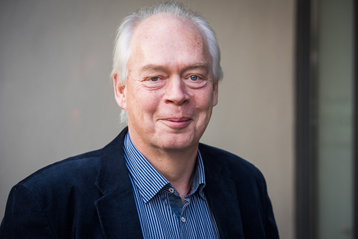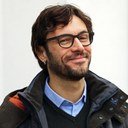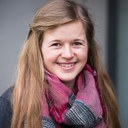Discovering Europe
Freiburg, Mar 07, 2017
Those who hear the name Erasmus today may be less likely to think of the 15th-century universally educated Humanist Erasmus von Rotterdam - who once taught in Freiburg - than of the European exchange program named after him. The program was launched 30 years ago this year. The University of Freiburg was a participant right from the start. Anita Rüffer spoke with Ulrich Eckelt of our EU Office, which has been our Erasmus contact point for 20 years.
Mr Eckelt, 30 years ago Europe was still enthusiastic about integration. What is the idea behind Erasmus?
Ulrich Eckelt: European countries were to grow closer, and sharing education was one way to do that. Because the European Union cannot interfere in the education systems of its member states, it decided to make a difference indirectly via student exchanges between the universities and between their departments. And that was in the interests of business and industry too, because they wanted to fund staff with comparable qualifications from all over Europe.
What was the start of the program like in Freiburg?
At first there were just four students who were sent to three other European universities. They were pioneers back then, and the exchange was individually organized. Each student had to find the right university abroad and get his or her studies abroad recognized at home. In some cases, a professor would make use of his or her contacts and would write a personal letter of recommendation.

Ulrich Eckelt has been involved in the exchange from the start. Today he helps between 600 and 700 students from Freiburg to prepare for a study exchange abroad. Photo: Klaus Polkowski
And now?
Today it is all much more structured. The department chooses its candidates, our office carries out all the procedures and ensures that the strict EU requirements are met; for instance, there must be a letter of motivation and a curriculum suited to the student’s degree program at home. So there is no question of it being “a vacation sponsored by the EU,” as some have claimed. And you can hardly live it up on 150 to 250 euros per month - depending on the level of prices in the host country. Because Erasmus is not meant to be a program for the rich, it can be combined with the German student allowance Bafög. And Erasmus students do not pay tuition fees.
The EU has grown to 28 member states. What effect has that had on the Erasmus program?
Today, the University of Freiburg offers 1500 exchange places at 330 partner institutions in 30 European countries - every academic year. That covers the whole European Economic Area as well as candidates for EU membership such as Turkey. We have made bilateral agreements with Switzerland. But since 2016, Erasmus has been spreading out around the whole world. Now you can apply to go to an institution of higher education outside of Europe. And that means not just students, but members of academic and administrative staff as well. But staff stays abroad don’t last a whole semester. Students, however, have the opportunity to go abroad with Erasmus three times in all - during their Bachelor’s, their Master’s, and their doctoral studies - for twelve months each time. Erasmus also offers financial support for internships.
 Photo and montage: Sandra Meyndt
Photo and montage: Sandra Meyndt
What is the relationship between supply and demand?
As a proportion of students enrolled, we have the highest number of Erasmus students of any university in Germany. Between 600 and 700 Freiburg students go abroad each year. The most popular destinations are Spain, France, Italy, the United Kingdom, and the Scandinavian countries. Yet sometimes many of the available places in Eastern Europe remain empty. We simply cannot provide enough places for students of Law and Medicine; and in Sociology, the environmental and natural sciences, and in language studies, a period of study abroad is one of the requirements.
And how many come to Freiburg?
Up to 430, most of them from Italy. The subjects in greatest demand are German, Medicine, and Law. Unusually, students from Britain make up the second-biggest group in the coming summer semester. Perhaps they aim to make the most of the opportunity prior to Brexit.
EU Office at the University of Freiburg
“A whole new perspective”
Students who use the Erasmus program to go abroad or come to Freiburg are called outgoings and incomings. Some of them talked to Anita Rüffer about their experience on exchange - and some of them loved Freiburg so much that they stayed here.
 Ruxandra Stoia, 26, Philosophy, from Iași, Romania
Ruxandra Stoia, 26, Philosophy, from Iași, Romania
(Photo: Klaus Polkowski)
“I first came to Freiburg with Erasmus in 2013 during my Master’s studies. Now I am doing a doctorate in Philosophy and am studying here for another two semesters. This time I know my way around. I want to further improve my knowledge of German. I am writing primarily about ancient philosophers like Seneca and Marcus Aurelius, and in Romania I felt pretty much alone in that. My fellow students in Romania are mostly interested in modern philosophy - but in Freiburg I can talk with others who are interested in the same things. And I have access to so many books! The new university library is beautiful. Without Erasmus I would never have had the courage or the money to come to Germany.”

Jacopo Mariotto, 35, Philosophy, from Verona, Italy
(Photo: Max Orlich)
“Following my two Erasmus semesters in Freiburg in 2012-13 I didn’t go back again; I simply stayed here - first as a guest student, and now as an employee of the EU office. It’s my job to install new software, advise Erasmus participants, and to maintain contacts with partner universities. It’s sometimes surprising where life can take you. Without Erasmus I would never have ended up here.”
 Flores Rekowski, 22, Pharmacy
Flores Rekowski, 22, Pharmacy
(Photo: Klaus Polkowski)
“I spent a semester in Manchester, England, and one in Padua, Italy. I knew beforehand that my coursework would not be fully recognized. Pharmacy students don’t usually do study-abroad programs. But I don’t regret it. I learned a lot, both in my subject and about the countries and the people. And I learned to speak English and Italian. Now I’m working as an assistant at the Erasmus office, maintain our contacts with Italy, and share my experiences with others. The program taught me to find my way quickly in an unfamiliar environment and to be more open towards new people.”

